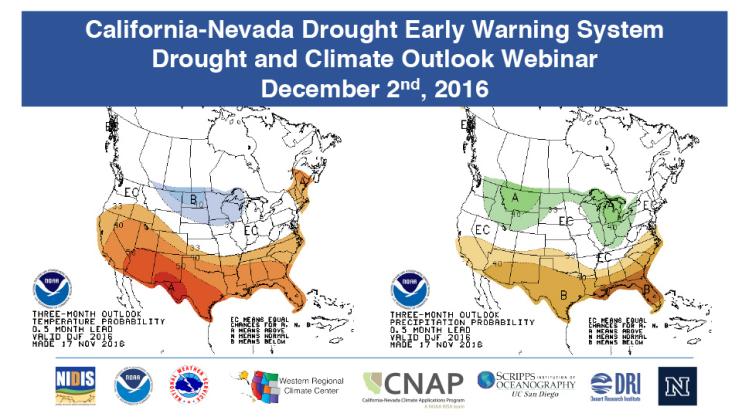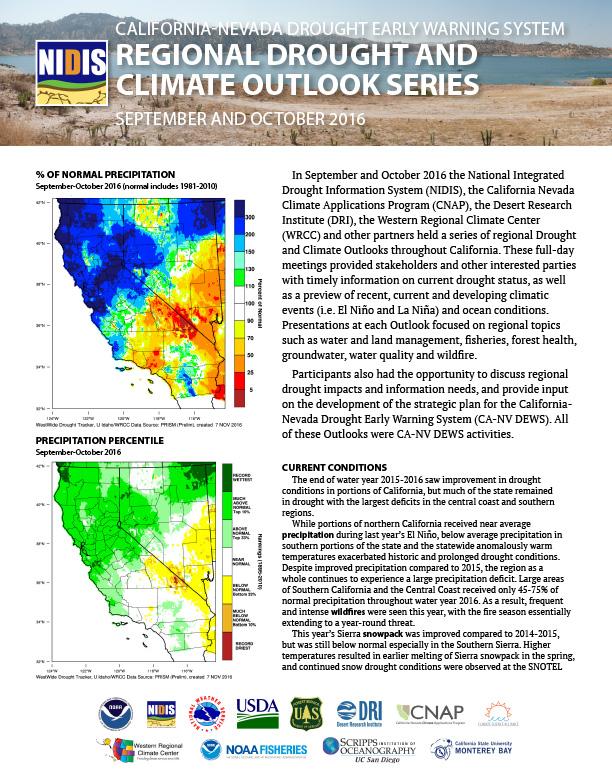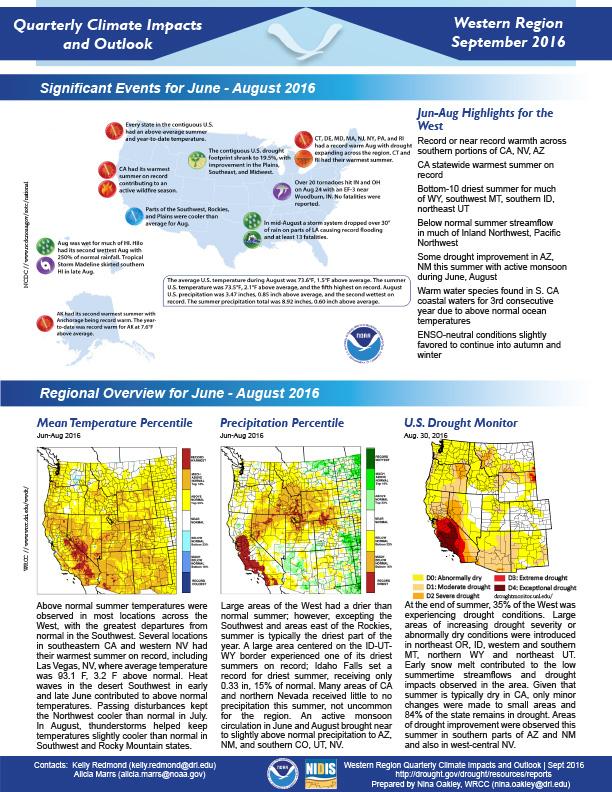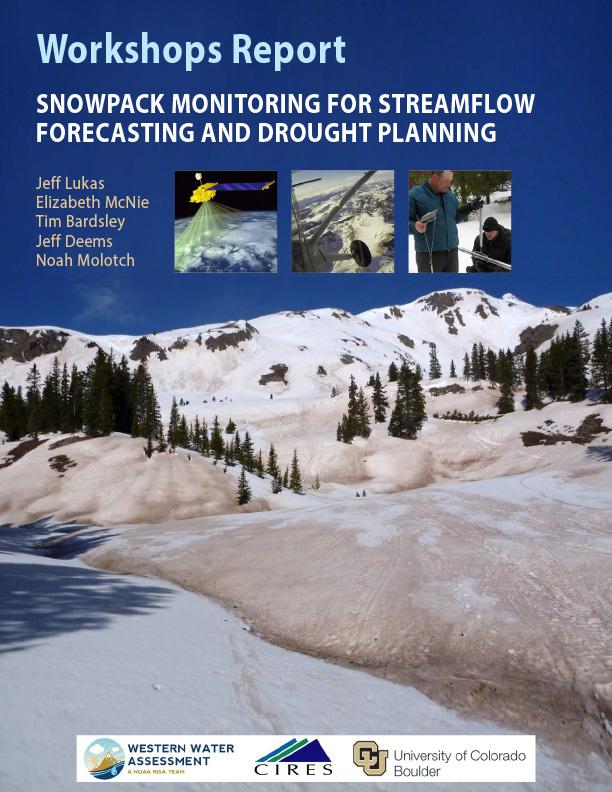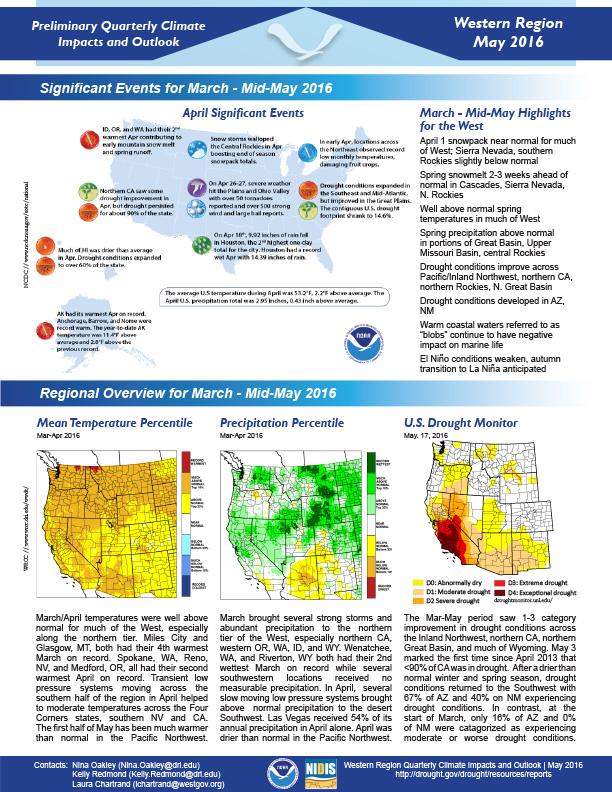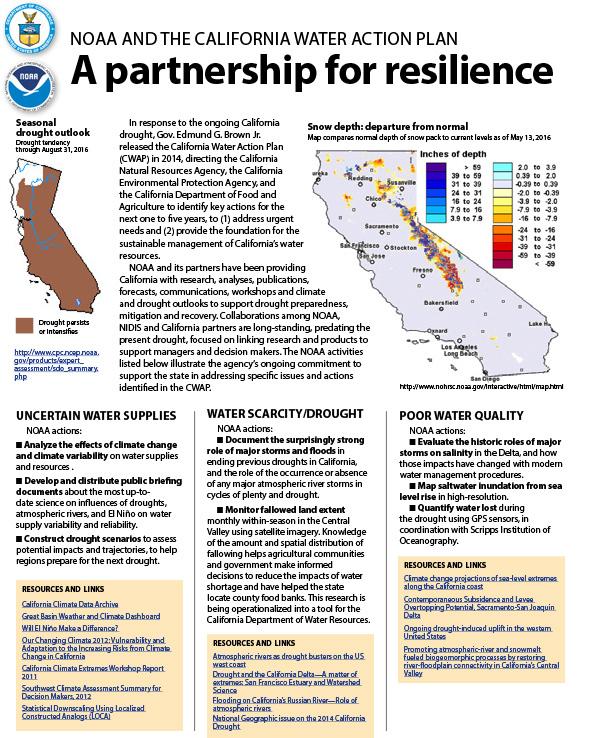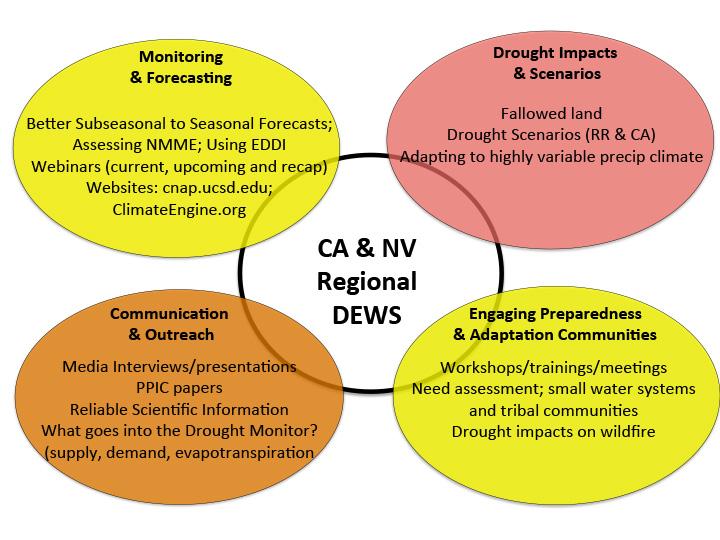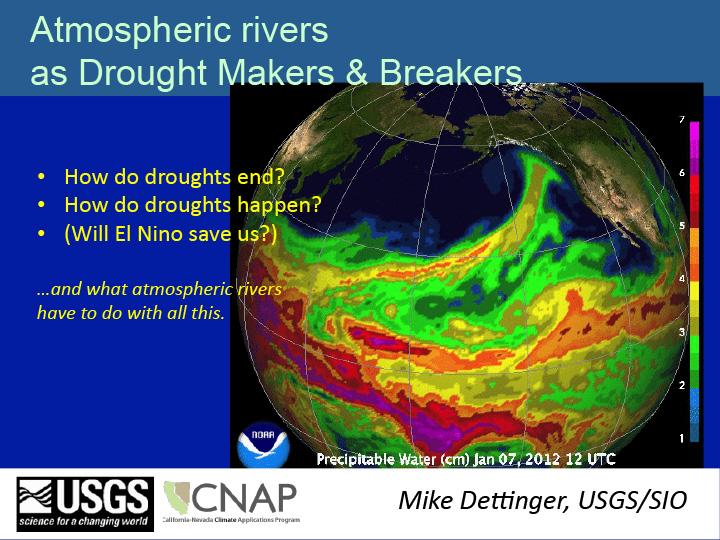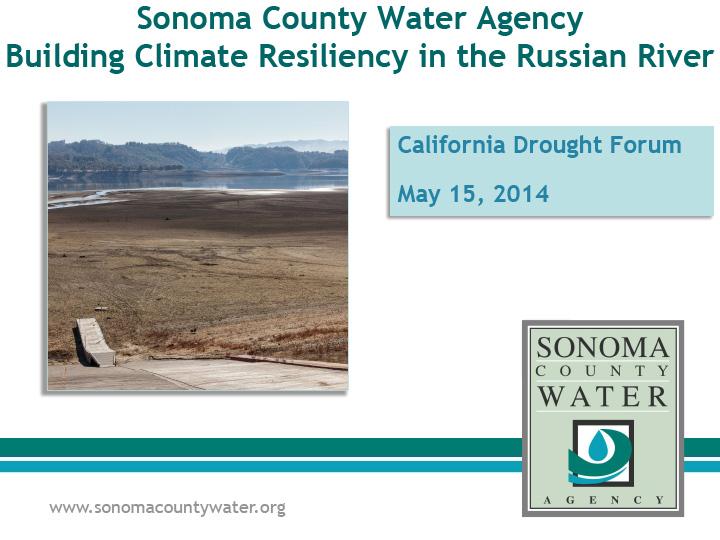What is NIDIS; what is a Drought Early Warning System (DEWS); what is the Californai-Nevada Climate Applications program (CNAP); webinar agenda.
In September and October 2016 the National Integrated Drought Information System (NIDIS), the California Nevada Climate Applications Program (CNAP), the Desert Research Institute (DRI), the Western Regional Climate Center (WRCC) and other partners held a series of regional Drought and Climate Outlooks throughout California. These full-day meetings provided stakeholders and other interested parties with timely information on current drought status, as well as a preview of recent, current and developing climatic events (i.e. El Niño and La Niña) and ocean conditions.
Quarterly Climate Impacts and Outlook for the Western Region for June – August 2016. Dated September 2016.
For water providers and others in the Rocky Mountain West who depend on the pulse of runoff from the melting snowpack from April through July, snowpack monitoring is drought monitoring. A well below average snowpack as measured by snow-water equivalent (SWE) is a harbinger of not only low water supply but also other drought impacts, such as increased fire risk and below-normal summer soil moisture.
Significant events, regional overview of conditions in the West and outlooks for precipitation, temperature and wildfire as of May 2016.
Describes NOAA activities through May 2016 in support of the California Water Action Plan (CWAP).
Activities, needs and communication/cooperation among DEWS and Working Groups.
Harvest yields, acreage amounts, irrigation systems and cash receipts over time for various crops.
How atmospheric rivers can influence drought, with discussion of potential outcomes of El Niño.
Overview of NOAA and NIDIS activities in the Russian River.


